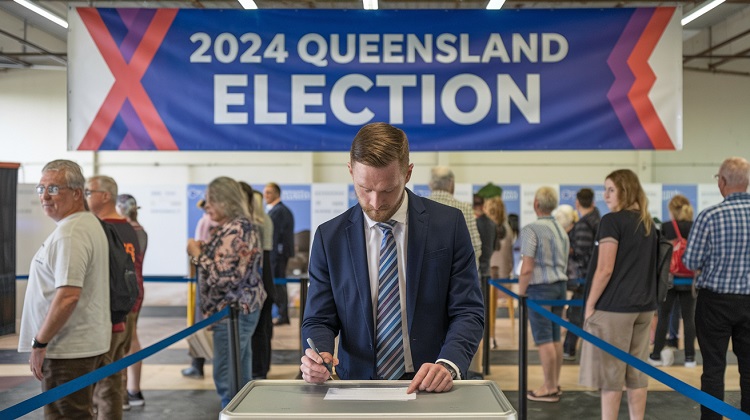Doctors are crying out for more Government help, saying they’re forced to pass on the soaring costs of operating a clinic to patients. The number of GPs who bulk bill is dropping, with Medicare rebates now covering a smaller portion of consult fees.
Bulk Billing Crisis: Neglect Impact Magnified
The burgeoning bulk billing crisis within Australia’s healthcare system has brought to light a concerning pattern of neglect that is now significantly impacting citizens nationwide.
As the availability of bulk billing services dwindles and Medicare rebates fail to keep pace with rising costs, the repercussions on patient access to essential healthcare services have become increasingly pronounced.
The article will explore the intricate web of factors contributing to this crisis and offer insights into potential solutions to address the escalating challenges facing both medical practitioners and patients alike.
Key Takeaways
- Inadequate funding and GP sustainability drive bulk billing crisis.
- Limited impact of tripled incentive underscores need for broader funding.
- Urgent call for Medicare reform and increased government funding.
- Advocacy for universal GP access and equitable healthcare for all Australians.
Current State of Bulk Billing Crisis
The current state of the bulk billing crisis underscores the pressing need for immediate government intervention to address the decline in patient access to essential healthcare services. With a record slump in clinics offering bulk billing and 87% of electorates experiencing a decline in bulk billing last year, Australians are facing challenges in accessing necessary medical care. Ten electorates have no bulk billing clinics, leading to individuals postponing crucial medical appointments due to the lack of affordable options.
The inadequacy of Medicare rebates funded by successive governments has further exacerbated the situation, highlighting the urgency for policy changes to ensure equitable access to general practitioners for all citizens.
Factors Contributing to Neglect
Neglect of essential healthcare services can be attributed to a combination of systemic funding inadequacies and challenges in sustaining bulk billing practices within the general practitioner community. The inadequate funding for Medicare rebates by successive governments has put pressure on general practitioners to maintain bulk billing for all patients.
This financial strain has led to a record slump in clinics offering bulk billing services, with 87% of electorates experiencing a decline in such practices. The inability of GPs to sustain bulk billing for all patients has forced many Australians to delay medical appointments due to the lack of affordable options.
Addressing these funding inadequacies and sustainability challenges is crucial to ensure equitable access to essential healthcare services for all individuals.
Decline in Bulk Billing Clinics
The dwindling presence of bulk billing clinics reflects a broader trend influenced by systemic funding inadequacies and challenges in sustaining affordable healthcare practices within the general practitioner community. The decline in bulk billing clinics has been exacerbated by inadequate funding for Medicare rebates, making it increasingly difficult for GPs to offer bulk billing to all patients.
This trend has forced many Australians to delay medical appointments due to the lack of bulk billing options, especially in areas where clinics have completely stopped offering this service. Without sufficient support and funding, the accessibility and affordability of healthcare services provided by GPs are at risk, highlighting the urgent need for government intervention and reform to ensure universal access to quality healthcare.
Regional Disparities in Access
Exposing the discrepancies in healthcare access between urban and rural areas sheds light on the challenges faced by residents in underserved regions. Rural areas often struggle with limited access to bulk billing clinics, forcing residents to travel long distances for medical care.
This geographical disparity exacerbates healthcare inequalities, with rural populations disproportionately affected by the lack of affordable healthcare options. The shortage of bulk billing clinics in regional areas not only hinders timely access to medical services but also contributes to poorer health outcomes due to delayed or forgone treatments.
Addressing these regional disparities in access is crucial to ensure equitable healthcare provision for all Australians, regardless of their geographical location.
Impact of Recent Incentive Increase
With the recent tripled bulk billing incentive implemented by the Federal Government, there has been a discernible impact on the accessibility of healthcare services, particularly in rural areas of Queensland. Following the incentive increase, there has been a small but notable 2.1% rise in bulk billing rates, with rural regions experiencing a more significant improvement.
However, it is crucial to note that this incentive only caters to a specific portion of the population, leaving gaps in universal access to healthcare services. As a result, there are calls for broader Medicare reform and increased funding to ensure equitable access to general practitioners for all Australians, addressing the limitations of the current incentive structure.
Challenges in Healthcare Funding
In light of ongoing healthcare funding challenges, it is imperative to address the structural deficiencies hindering equitable access to essential medical services. The limited impact of the tripled bulk billing incentive on overall access underscores the need for broader funding and systemic reform.
While the incentive benefited specific groups, a more comprehensive approach is essential to ensure universal GP access for all Australians. Increased funding is crucial for expanding access to GPs and addressing the disparities in healthcare provision.
Advocating for Medicare reform and heightened government support is necessary to establish sustainable healthcare funding mechanisms that prioritize equitable access to quality medical care for the entire population. Collaborative efforts are required to navigate and overcome the challenges in healthcare funding to build a more inclusive and effective healthcare system.
Urgency for Medicare Reform
The pressing need for Medicare reform is evident in the critical challenges facing the current healthcare system, necessitating immediate attention and action.
The current state of Medicare, marked by inadequate funding and limited access to bulk billing services, highlights the urgency for reform. With record slumps in bulk billing clinics and a significant decline in patient access to GPs, it is imperative that comprehensive changes are made to ensure equitable healthcare for all Australians.
Increased government funding, sustainable Medicare rebates, and policies that support universal GP access are vital components of the reform needed to address these pressing issues. Collaborative efforts among policymakers, healthcare providers, and advocacy groups are essential to drive meaningful change and secure the future of Australia’s healthcare system.
Advocating for Universal GP Access
Advocating for universal GP access in Australia is imperative to address the challenges posed by the current state of Medicare and ensure equitable healthcare for all Australians.
The current bulk billing crisis has highlighted the urgent need for increased government funding to support broader access to GPs.
Universal GP access is essential for providing timely and affordable healthcare services to all individuals, regardless of their socio-economic status.
By advocating for universal GP access, we can work towards reducing barriers to healthcare and promoting better health outcomes for the entire population.
Collaborative efforts between policymakers, healthcare providers, and the community are vital to ensure that every Australian has access to quality primary care services when needed.
Path Forward: Sustainable Healthcare Solutions
Exploring innovative strategies is essential for ensuring sustainable healthcare solutions in the face of current challenges. Implementing measures such as increasing Medicare rebates to adequately fund bulk billing services and support GP sustainability is crucial.
Additionally, promoting preventative care and early intervention can help reduce the burden on the healthcare system. Collaborating with healthcare providers, policymakers, and the community to develop comprehensive healthcare funding models is vital for long-term sustainability.
Emphasizing the importance of equitable access to healthcare services for all Australians is imperative in addressing the underlying issues contributing to the bulk billing crisis. By investing in preventative measures, improving access to primary care, and advocating for necessary reforms, a more sustainable healthcare system can be achieved.
Albion News is a great place to find informative, up-to-date news articles. We provide a wide range of unique articles that offer an interesting perspective on current events from around the world and from various different sources. You can easily search for the topics that matter most to you and explore in-depth pieces that provide insight into the issues and important debates occurring today. Albion News helps you stay informed with carefully researched and credible stories!







